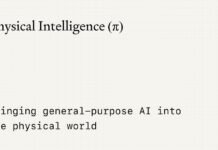Foxconn’s Bold Investment in AI: A Game-Changer for the Tech Industry
Foxconn’s Strategic Shift
Foxconn, the world’s largest contract electronics manufacturer, is poised to make significant waves in the tech industry with its announcement to invest $2 billion to $3 billion annually in artificial intelligence (AI). This bold move, articulated by Chairman Young Liu, reflects a strategic pivot towards AI, aligning with global trends in technology and innovation.
The AI Investment Landscape
During a recent visit to Tokyo, Liu emphasized that for the foreseeable future, AI will dominate their investment strategy, accounting for more than half of Foxconn’s annual capital expenditures, which total around $5 billion. This shift underscores the company’s commitment to developing robust AI infrastructure and technology over the next three to five years.
A Shift in Revenue Streams
Foxconn’s revenue mix is undergoing a remarkable transformation. The company’s cloud and networking business, which includes AI servers, has surpassed traditional consumer electronics for two consecutive quarters. This rapid transition highlights the increasing importance of AI in Foxconn’s overall business strategy.
The Electric Vehicle Market: A Brewing Storm
As Foxconn charts its course in the AI domain, Liu also addressed the turbulent state of China’s electric vehicle (EV) market. He anticipates a significant shakeout in the sector, where intense competition is leading to the exit of unprofitable startups. Liu remarked, "They’re not making money," pointing to the challenges facing many players in this crowded market.
Government Support and Market Realities
Liu further noted that government backing for EV manufacturers is becoming increasingly limited. This scenario sets the stage for a market consolidation that could lead to a more stable automotive landscape in China. The challenges are already reflected in the recent performance of BYD, the top EV maker, which reported its largest quarterly profit drop in over four years.
BYD’s Struggles: A Case Study
BYD is facing fierce competition from domestic rivals, forcing the company to revise its ambitious 2025 sales target down to 4.6 million vehicles. This situation exemplifies the broader issues plaguing the EV sector, where many companies are struggling to achieve profitability despite significant investment.
Foxconn’s EV Aspirations
Foxconn had previously set an ambitious goal of capturing 5% of the global EV market by 2025. However, this target has been postponed due to a global slowdown in demand for EVs. Despite this setback, Liu remains optimistic about the future of EVs, indicating that Foxconn is merely pausing its investments until market conditions improve.
Exploring New Frontiers: AI and Robotics
Beyond EVs, Foxconn is exploring potential investments in other cutting-edge fields, such as quantum computing and robotics. The company is currently in discussions with the Japanese government regarding these investments, emphasizing the importance of local manufacturing in maintaining data sovereignty.
The Outsourcing Trend in EV Manufacturing
Drawing parallels with the early personal computer industry, Liu predicts that the EV sector may soon experience a similar trend toward outsourcing. He believes that as competition intensifies, car manufacturers will increasingly look to outsource production, mirroring the shift seen in the PC market decades ago.
Foxconn’s Legacy of Innovation
Foxconn pioneered the outsourcing model in the 1990s while collaborating with Compaq Computer, establishing itself as the world’s largest PC supplier. Liu’s observations suggest that a similar dynamic is emerging in the EV sector, where successful outsourcing examples could lead to widespread adoption among manufacturers.
The Future of AI in Manufacturing
With AI at the forefront of its investment strategy, Foxconn is positioning itself not just as a manufacturer but as a leader in technological innovation. The company’s focus on AI development is expected to yield significant advancements in efficiency and productivity across its operations.
Challenges Ahead for Foxconn
While Foxconn’s investment strategy is ambitious, the company faces numerous challenges, including navigating a competitive landscape and responding to fluctuating market demands. Liu’s insights into the EV sector highlight the need for adaptive strategies in a rapidly changing environment.
Collaborations and Partnerships
As Foxconn explores potential collaborations, particularly in Japan, the company is likely to foster partnerships that enhance its technological capabilities. These collaborations could prove critical as Foxconn seeks to solidify its position in the AI and EV markets.
Looking Beyond China
The implications of Foxconn’s investment extend beyond China, as the company aims to influence global technology trends. By investing heavily in AI, Foxconn not only enhances its own capabilities but also sets the stage for broader industry advancements.
The Broader Impact on the Tech Industry
Foxconn’s commitment to AI investment could usher in a new era for the tech industry, influencing how companies approach innovation and manufacturing. As the largest contract electronics maker, Foxconn’s moves are likely to ripple through the sector, prompting others to reevaluate their strategies.
Conclusion: A New Chapter for Foxconn
In summary, Foxconn’s decision to invest heavily in AI marks a pivotal moment for the company and the broader tech landscape. With ambitious plans for the future, Liu’s leadership signals a commitment to innovation that could reshape the industry. As Foxconn navigates the challenges of the EV market and explores new frontiers in technology, its strategic choices will undoubtedly have lasting implications for the global market.







